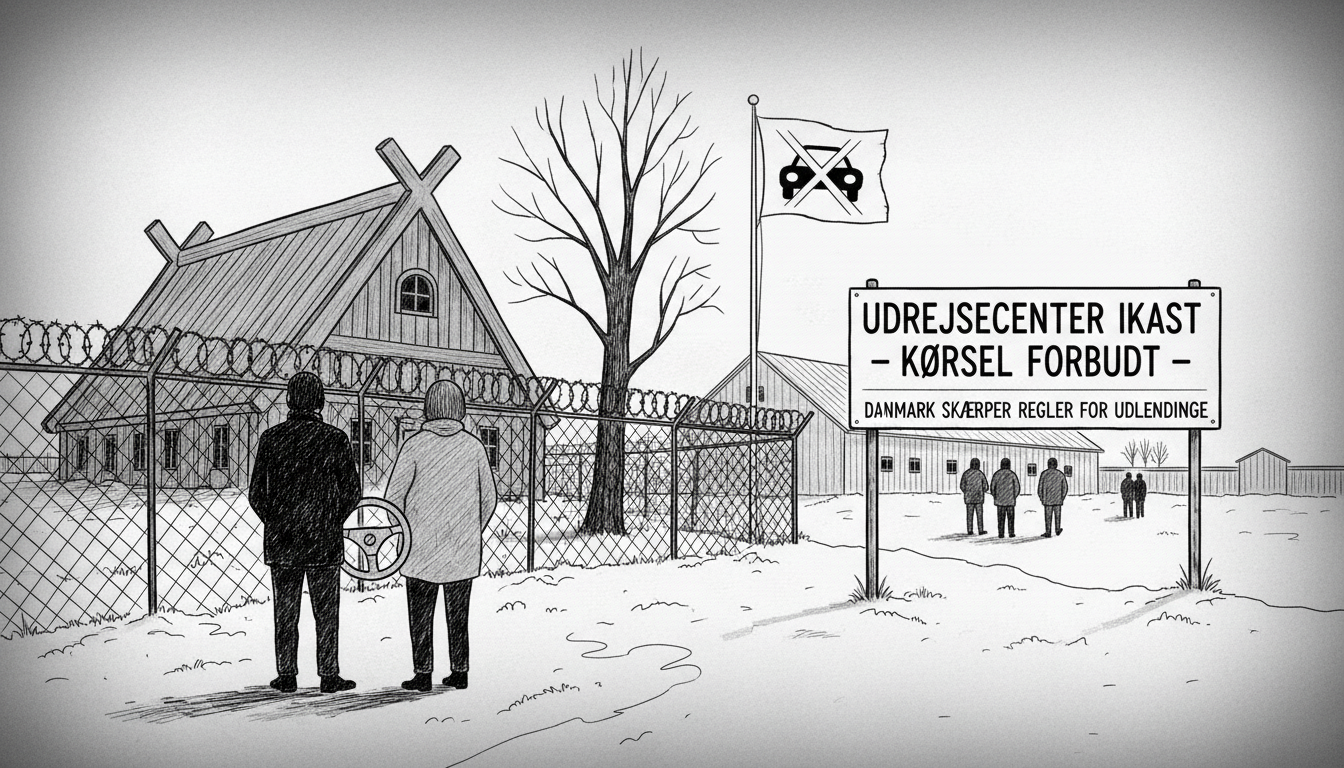Denmark has implemented strict new rules for residents at deportation centers starting in the new year. Criminal foreigners facing deportation and rejected asylum seekers must now report to authorities daily and are prohibited from driving cars. The Danish parliament approved these measures on Thursday.
The Ministry of Immigration and Integration announced the policy changes in an official statement. These regulations apply specifically to individuals living at Denmark's two departure centers. Previously, only foreigners with tolerated stay status needed daily check-ins. Now this requirement extends to all deportation-bound foreigners.
Violating the reporting obligation can result in fines or prison sentences. The simultaneous driving ban represents another layer of restriction. Government officials state these stricter rules aim to make it more difficult for foreigners to participate in Danish society.
Immigration Minister Rasmus Stoklund provided blunt reasoning for the measures. No foreigner should be able to live illegally in Denmark, he stated. They should instead leave the country. Until they depart, their existence should be as sad and boring as possible, he added. Authorities need daily knowledge of their whereabouts.
Denmark operates two departure centers through its prison service. These facilities are located at Kærshovedgård near Ikast and Sjælsmark outside Hørsholm. As of mid-October, 223 foreigners fell under the new daily reporting requirement according to ministry data.
Local residents in the Ikast area have complained about safety concerns and thefts. Some attribute these issues to center residents. The government denies that daily reporting will create additional local problems. Officials actually believe it will benefit central Jutland residents if foreigners remain at the center rather than moving through the area.
Statistics reveal the scope of violations among center residents. In mid-October, 131 of 234 residents at Kærshovedgård had convictions for breaking either immigration law or home return legislation. These are precisely the laws that trigger the reporting requirements.
This policy reflects Denmark's increasingly strict approach to immigration enforcement. The country has been tightening rules for years regarding asylum seekers and rejected applicants. The driving ban particularly limits mobility for people already facing restricted movement options.
International observers note Denmark's immigration policies rank among Europe's most stringent. The explicit goal of making life unpleasant for certain foreigners represents a controversial approach. Yet it aligns with the government's stated objective of discouraging illegal stays.
The practical implications extend beyond simple inconvenience. Without driving privileges, residents face greater isolation and dependency on center facilities. Daily reporting requirements consume time and reinforce their provisional status. These measures collectively create what officials openly describe as an intentionally bleak existence.
Local communities remain divided about the centers' presence. Some residents report feeling unsafe, while others acknowledge the economic activity these facilities generate. The government maintains that stricter control measures will ultimately benefit all parties except those who should have left Denmark already.

